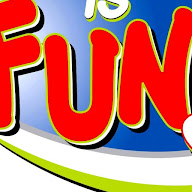comment
Relative adverbs or relative pronouns
So whenever I wanted to substitute 'relative adverbs' for 'relative pronoun' put 'preposition+which' if it makes sense then we can use both of them ; otherwise we are only allowed to use 'relative pronoun.'
comment
Relative adverbs or relative pronouns
You mean I have to rewrite as: "But what about the home behind which you are leaving ?" or "But what about the home where you are leaving ?"
revised
Relative adverbs or relative pronouns
edited title
Loading…
Loading…
comment
The managers did not know whom to trust
Thanks so much. Is it because 'whom' refers to object of the verb 'know' in the pattern mentioned above that we use 'whom' instead of 'who'?
comment
The managers did not know whom to trust
Great clue. Do that sentence follows the pattern below? "know somebody/something to be/do something We know her to be honest."oxfordlearnersdictionaries.com/definition/english/know_1?q=know
Loading…
accepted
Loading…
awarded
comment
"We’d like to see the baby’s weight going steadily up."
Is the following was the original sentences? is it kind of an adjective clause reduction? "We’d like to see the baby’s weight (which is )going steadily up." or "We’d like to see the baby’s weight (which goes) steadily up."
comment
Inversion in conditional sentence without "were"
@StoneyB: Thanks so much.I really appreciate your help.
comment
Inversion in conditional sentence without "were"
@StoneyB : Thanks for great explanation. I fully understand it. My English teacher told:" if we use this kind of structure in our essay, we will score high in IELTS exam." So, we only use 'had','were' and 'should'. If we have any other verb in our conditional sentences, we are not allowed to use 'inversion in conditional sentences". Am i right? For example, "If I lived in United Satetes, I woudn't need to get IELTS certification."
Loading…
comment
Inversion in conditional sentence without "were"
I almost understand nothing about your answer. It was not clear to me as I am an intermediate leaner.In the end, I don't know if we could use inversion in my question or not.
Loading…
comment
cleft and pseudo cleft sentences(All (that) I did was **touch** the window, and it broke.)
I want to know how much I 've learned this type of grammar.I wrote all of them by myself.
comment
cleft and pseudo cleft sentences(All (that) I did was **touch** the window, and it broke.)
Are these sentences correct? All that I need is to study hard. All that I need is a good meal. All that I need is that I should improve my English. All that I need to do is play guitar at the moment. All that I like is going swimming now. All that I like is to go swimming now. All that I have to remember is that she is so dangerous. All that I have difficulty is (in) solving the puzzle. These two are confusing: All that I did is describing ALL. All that I did is to describe or describe ALL.
comment
cleft and pseudo cleft sentences(All (that) I did was **touch** the window, and it broke.)
Thanks for your help and informative information. When we use 'All-Cleft' , where do we have to use 'that'? All (that) I did was touch the window, and it broke or All that I did was that touch the window, and it broke or All I did was touch the window, and it broke. Why do we use 'that' immediately after 'all'? Is it kind of that-clause or not? I don't know where I should put 'that'.For example in the sentence 'It is a pity that he is no longer with us.' I know where I should use 'that' but in All-cleft it is confusing.
comment
cleft and pseudo cleft sentences(All (that) I did was **touch** the window, and it broke.)
Thanks teacher. I really appreciate your help. Sorry taking up too much of your time .this was good point :The predicate complement of the cleft must supply either a nominal or an action according to the needs of the verb in the cleft.



